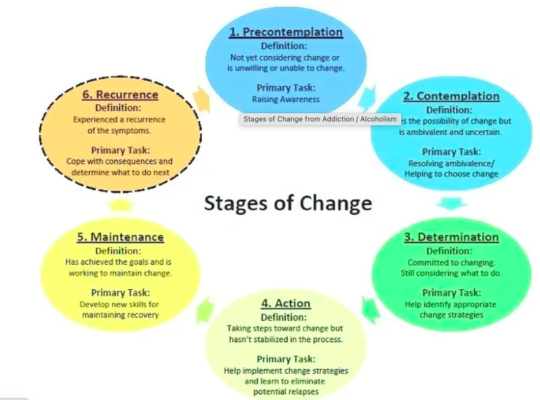Fad diets
In today’s world, it’s no surprise that fad diets have become the go-to solution for many individuals looking to achieve their health and weight goals. The promise of quick results and instant gratification can be alluring, but the reality is that fad diets are unsustainable and often detrimental to both physical and mental well-being. In this blog, we will explore the common patterns and pitfalls of fad diets, understand why they are unsuccessful in the long run, and most importantly, discover how to break free from this relentless cycle to find lasting health and freedom.
A Vicious Cycle
All fad diets share certain characteristics that contribute to their failure and perpetuate a vicious cycle:
- Restrictive Eating: Fad diets typically involve severe restrictions on overall food intake, certain macronutrients, or favorite foods. This often leads to skipping meals, micromanaging calorie intake, and labeling foods as “good” or “bad.” The restrictive nature of these diets can create an unhealthy relationship with food and trigger feelings of deprivation.
- Hunger and Cravings: By starving the body through extreme dieting, one is bound to experience constant hunger and cravings for the very foods they are denying themselves. The more you tell yourself you “can’t have” something, the more you desire it, leading to a heightened sense of food fixation.
- Physical and Mental Strain: The initial phase of following a fad diet might bring short-term results, but the body eventually starts sending signals of distress. Skipping periods, digestion issues, and nutrient deficiencies are common consequences of these diets. Furthermore, the constant focus on food can create mental strain, as individuals find themselves constantly preoccupied with what they should or should not be eating.
- Guilt and Blame: When the inevitable happens, and the diet is broken, guilt and self-blame often follow. Many people attribute their inability to stick to the diet to a lack of willpower, further damaging their self-esteem and confidence.
Escape
The good news is that breaking free from the fad diet cycle is entirely achievable with a balanced and holistic approach to nutrition and self-care. Here are some steps to help you transition to a healthier and sustainable way of eating:
- Ditch the All-or-Nothing Mindset: Shift your focus from strict rules and absolutes to a more flexible and compassionate mindset. Avoid labeling foods as good or bad; instead, emphasize nourishing your body with wholesome, nutrient-dense options while occasionally enjoying treats in moderation.
- Listen to Your Body: Learn to recognize and respect your body’s hunger and fullness cues. Eat when you’re hungry, and stop when you’re satisfied. Trust that your body knows what it needs and will guide you toward better choices if you listen to it.
- Embrace Balanced Nutrition: Focus on creating balanced meals that include a variety of whole foods from all food groups. A balanced diet ensures that you get all the necessary nutrients to support your health and well-being.
- Practice Mindful Eating: Mindful eating involves savoring each bite, paying attention to flavors and textures, and being fully present during meals. This practice can help you build a healthier relationship with food and reduce overthinking.
- Focus on Long-term Health: Shift your perspective from short-term results to long-term health and well-being. Remember that a healthy lifestyle is not about instant transformations but rather sustainable habits that will benefit you for life.
Balance
Fad diets may seem tempting, but they offer no lasting solutions. The restrictive nature of these diets can lead to physical and mental strain, creating a cycle that is difficult to break. The key to ending this cycle lies in adopting a balanced, nourishing, and sustainable approach to eating. By embracing mindful eating and shifting your focus to long-term health, you can break free from the fad diet train and discover true freedom in nourishing your body and mind.
I can help:
Breaking the fad diet cycle and achieving sustainable, long-term health goals requires more than just following the latest diet trends. This is where a health coach can play a crucial role in helping individuals make lasting lifestyle changes and foster a healthier relationship with food and their bodies. Here are some reasons why a health coach is needed to break free from the fad diet cycle:
- Personalized Approach: Fad diets often take a one-size-fits-all approach, promoting the same restrictive meal plans or supplements for everyone. Health coaches, on the other hand, work with individuals on a personal level, understanding their unique needs, preferences, and goals. They tailor plans specifically to each person, making the journey more sustainable and enjoyable.
- Education and Empowerment: Fad diets often focus on short-term fixes without educating individuals about nutrition, balanced eating, and the importance of a holistic lifestyle. A health coach equips clients with the knowledge and tools they need to make informed decisions about their health. By empowering clients with information, they can take charge of their own well-being in the long run.
- Behavior Change: Fad diets rarely address the underlying behaviors and mindset related to eating habits. Health coaches help identify problematic patterns and work on transforming them into healthier habits. They provide support, accountability, and encouragement, which are vital in making lasting behavioral changes.
- Sustainable Progress: Fad diets often lead to rapid weight loss, which is challenging to maintain and can be detrimental to overall health. A health coach promotes a gradual, sustainable approach to weight management and overall wellness. They encourage clients to focus on overall health rather than just the number on the scale.
- Focus on Health, Not Appearance: Many fad diets concentrate solely on achieving a particular body image, often leading to unhealthy obsessions and dissatisfaction. Health coaches emphasize health as the primary goal and encourage self-acceptance and body positivity. They shift the focus from appearance to overall well-being, fostering a healthier relationship with one’s body.
- Emotional Support: Fad diets can trigger emotional turmoil and feelings of failure if the expected results are not achieved. Health coaches act as a supportive ally, helping individuals navigate through setbacks and challenges. They provide encouragement and guidance, promoting a positive mindset throughout the journey.
- Long-Term Lifestyle Changes: Fad diets typically have a short lifespan, leaving individuals without a plan once the diet fades away. Health coaches work on establishing long-term lifestyle changes that extend beyond the coaching period. They help clients build sustainable habits and maintain progress for years to come.
- Accountability: Staying committed to a fad diet can be difficult without external accountability. Health coaches provide the necessary support and hold clients accountable for their actions. This accountability fosters consistency and helps individuals stay on track even during challenging times.
In conclusion, a health coach offers personalized guidance, education, and emotional support that go beyond the short-term fixes of fad diets. They empower individuals to take control of their health, make sustainable changes, and break free from the harmful cycle of fad diets, leading to improved overall well-being and a healthier lifestyle.
Photo: https://www.viome.com/blog/facts-about-fads-4-ways-trendy-dieting-hurting-your-health







